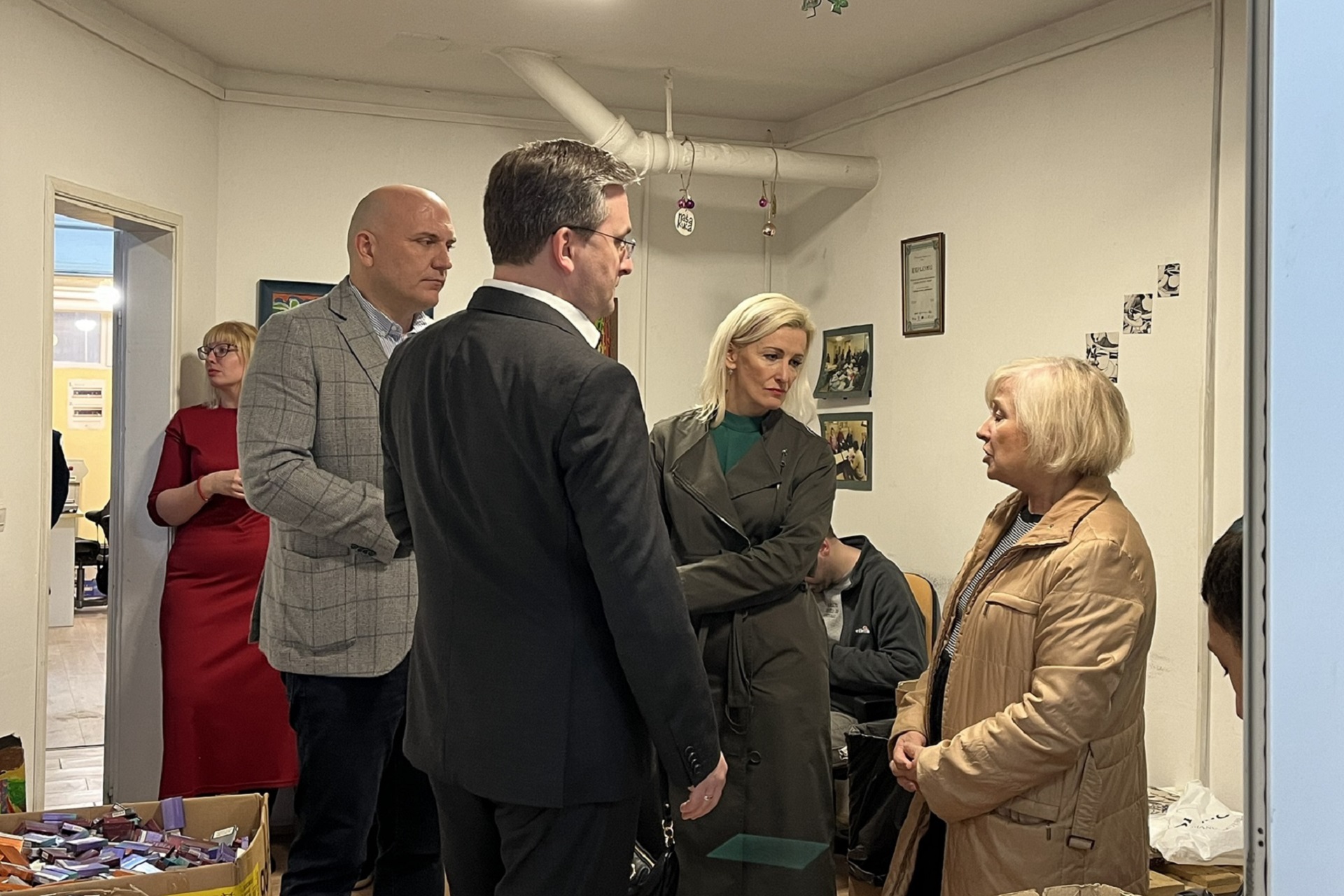Shopping with a purpose for sustainable social enterprises
It seems that things are looking up for social enterprises in Serbia, after years of advocacy by non-governmental organizations. The state adopted the Law on Social Entrepreneurship, and the Ministry of Labor announced that in the spring, 50 million dinars will be allocated to support the development of this sector. However, for social enterprises to stand on their own feet and realize their full potential, they need steady customers, and many aim to become part of the supply chains of large companies.
Purchasing products and services from social enterprises is also at the core of the European initiative "Buy social B2B," which was created to promote the development of social procurement in Europe and worldwide. Smart Collective is the only organization from Serbia that is part of this network of partners, which includes 22 organizations from 17 countries, led by the European Network of Social Enterprises (Euclid Network) along with the Social Enterprise World Forum (SEWF).
From Smart Collective's perspective, what's significant about such purchases is that they create added value – desired products and services are obtained while also supporting the social and environmental mission of social enterprises. In other words, it's both a purchase and a donation simultaneously.
- Based on our years of work with social enterprises, we know that sales and stable business partnerships can play a significant role in the growth of social enterprises. On the other hand, companies that operate socially responsibly and want to increase their positive impact on the community can achieve this through their supply chain, procuring products and services they need from social enterprises – says Neven Marinović, director of Smart Collective and a member of the Advisory Board of NALED.
Social enterprises in Serbia, like those in Europe, face challenges in mapping and establishing contacts and collaboration with suitable partners. It's important for social enterprises to find business partners with the capacity to serve them. A limiting factor for many is slow business growth and opportunities to be suppliers to larger companies.
In more developed and supportive ecosystems of the social economy, such as the UK and the Netherlands, social enterprises receive much greater support in business development. Thanks to the long tradition of the Buy Social movement and social procurement both in the public and private sectors, these enterprises have grown significantly.
Estimates suggest that the new transnational initiative "Buy Social Europe B2B" is elevating social procurement to a higher level, further opening up a market opportunity for social enterprises worth $500 billion.
- This motivates us to promote this movement here because we have evidence that it works. The idea of the movement is to map the ecosystem, collect data, share knowledge, and support each other's growth. Through the project, we will provide free education, and through various platforms such as the CSR Forum, Social Innovation Forum, and Partnership Fair, we will continue to work on connecting organizations and social enterprises with the private sector – adds Marinović.
Although there is no exact data on the collaboration between domestic social enterprises and the private sector, it's known that the majority of companies purchase corporate gifts or utilize services such as packaging, printing, catering, and dry cleaning. Among the pioneers in Serbia who have long-term partnerships with social enterprises are companies like Erste Bank Serbia, Elixir Group, Delhaize Serbia, Delta Holding, IKEA, UniCredit Bank, and Coca Cola Hellenic.
More attention to marginalized groups is needed in public procurement conducted by the public sector, and year after year, social criteria are least applied. As part of the project "Public Procurement and Good Governance for Increased Competitiveness," NALED, in collaboration with the Swedish International Development Cooperation Agency (Sida), developed models of tender documentation for three procurement subjects with social criteria – procurement of protective equipment, frozen fruits and vegetables, and maintenance of green areas. The most suitable sectors for including such elements are recognized as construction, healthcare, and trade, i.e., those with the highest turnover of capital.
Social enterprises are organizations with a dual mission: achieving social or environmental goals while also achieving financial sustainability. Their primary focus is not just profit-making but also contributing to society by addressing social or environmental issues. It is estimated that there are between 200 and 500 social enterprises operating in Serbia, while only slightly more than 10 have officially registered their status according to the law.



